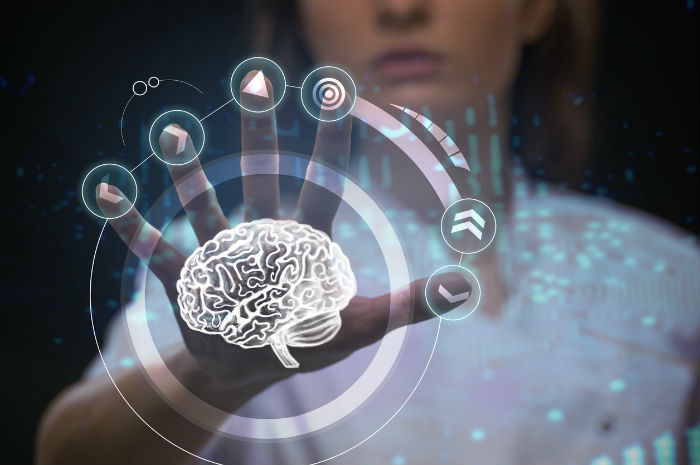New technology is having a profound impact on how we acquire new skills, but scientists remain intrigued by how we make best use of that most fascinating computer of all: the brain.
As robot technology and artificial intelligence dominate thinking in the field of education science, we take a look at how three thought leaders are seeking to understand the human aspect of what, how, why, where and when we learn.
QUALITY WINS OVER QUANTITY
Scientists have long battled to conclude the exact number of hours it takes to master a new skill. The exact total still eludes capture, but neurologists studying how practice manifests in the brain argue that how you set about acquiring a new skill is perhaps more important than how often you go about doing it.
The key to skill mastery seems to be a connective tissue in your brain’s nerve fibres called ‘myelin’. Like insulation on electrical cables helping to prevent energy loss, myelin develops robustness through practice.
Consistency is one key to strengthening myelin. Frequent practice with short regular breaks, is markedly more successful a strategy than spending hours upon hours repeating yourself. Focus is another. To become a master, science says you should minimise distractions during your practice time (a study of students showed that most could only concentrate for six minutes before having attention diverted by beeping phones, emails or Facebook). And finally, slowly but surely is the order of the day. Science urges caution to those who tend to dive in feet first. So start slowly or even in slow motion and gradually build up to full speed.
When acquiring new motor skills, perhaps the most surprising thing of all is that mental practice can be as effective as the physical routine. A study of basketball players showed that those who visualised performing perfect throws were almost as improved after one week of practice as those who’d put in the physical work. Key to this understanding, though, is that both groups were already regular players, suggesting that visualisation – rather than a replacement for doing the real thing – is an aid for improving on work you’ve already done.
“As scientists get closer to unravelling the secrets of our brains, our understanding of effective practice will only improve,” says Freelance Musician, Dr Annie Bosler. “In the meantime, effective practice is the best way we have of pushing our individual limits, achieving new heights and maximising our potential.”
WHILE YOU WERE SLEEPING…
Learners preparing for a professional exam or rehearsing for a career-defining presentation can easily fall into the trap of believing that burning the midnight oil offers the best shot at success. Putting everything on hold while you spend every spare second pouring over the data, means you’re more likely to have the facts at your fingertips, right?
Scientists beg to differ, arguing that the best thing you can do as your big day approaches is to get as much sleep as possible – and not just so that you feel healthy and refreshed as you rise to your challenge.
Researchers studying what happens in your brain when you indulge in a sound eight hours say that sleep, far from being lost time, or just a way to relax when all your important work is done, is actually critical to how all that important work is consolidated.
As you fall asleep, one fifth of your body’s circulatory blood is channelled into to your brain, leading to “an intensely active period of restructuring”. In the first stage of deep sleep, a complex neurological relay enables consolidation of your declarative memory (your recall of facts and events). Next, in the Rapid Eye Movement stage of deep sleep, your procedural memory (otherwise known as motor skills) is given the neural equivalent of a thorough cleanse and polish.
“We normally forget 40% of new material within the first 20 minutes [but] there are a few ways to influence the extent and effectiveness of memory retention [and] sleep is the major factor,” says Neurologist and Sleep Specialist, Dr Shai Marcu. “Skimping on sleep not only harms your long term health but actually makes it less likely that you’ll retain all that knowledge and practice. Proper sleep will have you waking up every morning with a new and improved brain, ready to face the challenges ahead.”
HOW YOU USE YOUR SMARTS IS MORE IMPORTANT THAN WHAT YOU KNOW
In a lecture at the Royal Society of Arts, John Lloyd, the legendary producer of QI (a British quiz show which demands interesting rather than factually correct answers), argued that in their insatiable thirst for acquiring new knowledge, human beings may have forgotten something that’s more important than intelligence.
He questions just how much data we humans really need to acquire. “You don’t need to know very much,” he concludes. “It’s a question of working out which are the important things.”
The important thing, as far as he’s concerned, is kindness. “It’s what you do with your intelligence that counts. To be kind is good. In any circumstance, kindness is better than almost anything. We all know what is right, actually. We pretend we don’t because we’re disabled by our needs and selfishness. Being nice to people, matters.”
More trending topics on the everywomanNetwork
4 ways you’re already future proofing your career – and how you can get better at it
The importance of workplace allies
Thinking globally: why seeing the international picture matters for your career





